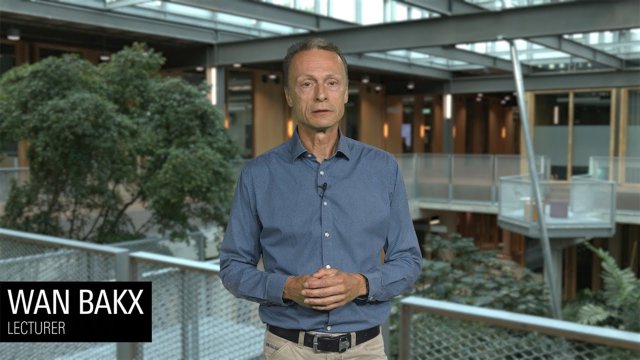harnessing the power of technology to automate the analysis and interpretation of large and complex spatial datasets—like satellite images, UAV data, and local sensor data
Geospatial artificial intelligence (GeoAI) is an exciting fusion of innovations in spatial science (GIScience) and big geospatial data with the rapid growth of methods in AI and machine learning helping us to increase our understanding of earth processes and support the development of solutions to better manage earth’s resources and ecosystems, improve our living environment and for example assess disaster risks. If you’re passionate about harnessing the power of technology to automate the analysis and interpretation of large and complex spatial datasets integrating, for example, remote sensing images, UAV data, citizen science and local sensor data, then GeoAI is the perfect theme for you.
Video GeoAI explained
In this video, course coordinator Wan Bakx explains the Geospatial Artificial Intelligence (GeoAI) specialisation within the Master's in Geo-information Science and Earth Observation.
What is GeoAI?
The abundance of geospatial data, advanced remote sensing and GIS technologies, machine and deep learning algorithms and the wide variety and scales of geospatial problems require specialists and scientists with specific academic and technical skills. The GeoAI specialisation offers ample opportunity to develop the necessary skills that will enable you to leverage the latest technologies, like the application of drones/UAV and cloud computing, and algorithms like machine learning. The focus of this specialisation is on building a solid understanding of the suitability of machine and deep learning algorithms for specific geospatial problems using available big complex geospatial data sets that come from various sources, including citizen science, survey, GPS or satellite images. It comes without surprise that you develop appropriate scripting and programming skills to exploit and improve existing algorithms. In the end, you ensure that the generated geo-information is reliable and actionable.
Learning pathways
Examples of courses and learning pathways you can follow during this specialisation are:
1: Remote Sensing Specialist
As a Remote Sensing Specialist, you have extensive knowledge and skills on a wide variety of Remote Sensing sensors, and you understand the operational behaviour, limitations and capabilities of the platforms carrying them. You have an interest in the technology and how to advance its application for global challenges. This means you can cover the whole range from satellite remote sensing, through aerial survey, ‘down to’ drones/UAVs using, for example, optical (multispectral and hyperspectral sensors), radar or LiDAR sensors. It is not only vital to understand how to acquire relevant data but also to understand how to integrate the variety of data types and sources to support solving important critical environmental and societal challenges related to urban expansion, food security, disaster management, or climate change. You will explore and understand algorithms ranging from traditional machine learning like Random Forest and Support Vector Machine to cutting-edge deep learning such as, Convolutional Neural Networks or Transformer Networks. We emphasize on the appropriate application of these machine and deep learning algorithms to e.g. map changing glacier patterns, classify and monitor crops. study the spatiotemporal variations of nutrients in crop grains but also efficiently and accurately model 3D building and infrastructure for urban expansion modelling and flood assessment and prediction. There is a wide range of applications in which you can contribute with your versatile technical knowledge and competences in Remote Sensing. In addition to the specialisation courses you select 2 elective courses from the following list:
Elective courses (select two)
- Advanced Geospatial Analysis and Time Series
- Earth Observation with UAV
- Radar Remote Sensing
- Laser Scanning
2: Geospatial Data Engineer and Analyst
Data has become vital for governments, public organizations, and businesses to remain competitive, realize their aims, or fulfil legal mandates. Much of this data is geospatial and enables a wide range of applications. As a Geospatial Data engineer and scientist, you are responsible not only for building data infrastructures, integrating data from multiple sources, and enriching data to access relevant information, but also for (systems) modelling and analysing spatial and temporal data. You will help study, understand and address human and environmental problems thereby contributing to a more sustainable and digitally fairer world. As part of your tasks, you contribute to developing geodata-intensive solutions requiring you to translate scientific and technical questions from colleagues, management, or customers into data and information products. You can visualize and communicate analytical outcomes appropriately. You have a high level of conceptual thinking and a critical attitude when translating information needs into geospatial products and solutions. You can work with big data in the cloud or in a distributed fashion to perform and automate specialized tasks using coding. As an expert in using up-to-date analytical and artificial intelligence techniques, methods and tools, you can reveal new patterns and insights from heterogeneous data sources. In short, you will contribute to the advancement of knowledge and technology by delivering actionable spatiotemporal information or information systems.
Elective courses (select two)
- Big Geo Data
- Geovisualisation and A/VR
- Geoweb apps and Services & SDI
- Advanced Geospatial Analysis and Time Series
- Multi-Agent systems
What will you learn?
As a graduate of the Master's in Geo-Information Science and Earth Observation with a specialisation in GeoAI you have acquired specific, scientific knowledge, skills and values.
Knowledge
After completing this Master’s specialisation, you will:
- Comprehensive understanding of methods and technologies to acquire and integrate geospatial data at multiple scales and from multiple sources including remote sensing and store it efficiently
- In-depth knowledge of state-of-the-art quantitative machine learning methods for analysing big and complex geospatial data sets and to generate actionable information and knowledge to achieve sustainable development goals
Skills
After successfully finishing this Master’s specialisation, you are able to:
- Develop systems to capture, generate, process, and share various geospatial data and information according to established international standards
- Develop and train new and existing algorithms and machine learning models for analysing various geospatial data
- Develop methods to model complex systems exploiting big geospatial datasets, and generate reliable predictions and classifications
- Develop scripts and programs to exploit and improve existing algorithms
- Document and share your work transparently and reproducibly following best practices of open science and explainable AI research
Values
After completing this Master’s specialisation, you:
- Strive for and are capable of objective, independent, and critical thinking
- Have developed a strong interest in responding to changing demands and opportunities from society and industry, both in scientific and technical terms
- Embrace the value of open and reproducible science (data, programs, solutions)
- Value geo-information and earth observation data for providing solutions to global challenges and sustainable development goals
- Take a professional, responsible, and ethical approach to working with GeoAI, stakeholders and clients




